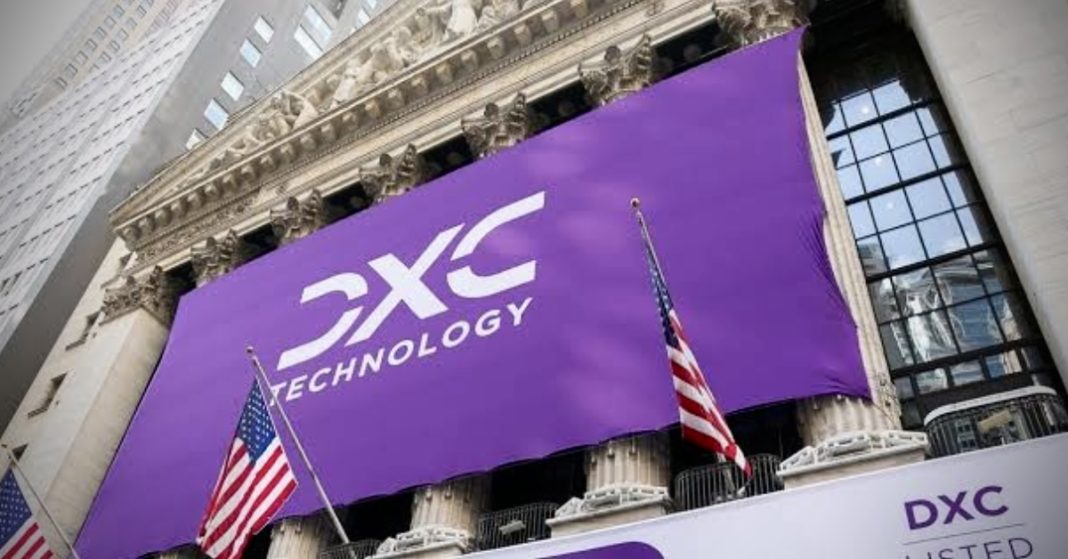In today’s fast-paced corporate environment, maintaining a robust and transparent business strategy is essential for sustainable growth. DXC Technology, a leading global IT services company, recently faced a series of controversies that highlight the significant pitfalls that brands can encounter. From failed acquisition talks to legal penalties due to financial reporting errors, these setbacks serve as cautionary tales for entrepreneurs and business owners. This case study explores the mistakes made by DXC Technology, the consequences of these missteps, and offers actionable insights for building responsible and resilient brands.
The Downfall of DXC Technology: A Brief Overview
DXC Technology was formed in 2017 through the merger of Computer Sciences Corporation (CSC) and the Enterprise Services segment of Hewlett Packard Enterprise. Initially positioned for growth, the company has struggled with various challenges, including failed acquisition attempts and issues related to financial reporting. Most notably, the departure of its CEO amid disappointing financial results has created uncertainty regarding the company’s direction and future.
1. Failed Acquisition Talks
One of the most significant setbacks for DXC Technology involved unsuccessful acquisition discussions. The company’s attempts to acquire other firms to expand its portfolio and strengthen its market position ultimately fell through. These talks, which were expected to bring synergy and growth, resulted in a loss of investor confidence when they failed to materialize.
Consequences:
- Investor Distrust: The inability to execute acquisitions led to declining stock prices and growing skepticism among investors regarding the company’s strategic direction.
- Reputational Damage: Frequent reports of failed negotiations eroded the company’s reputation, making it harder to attract potential partners and talent.
Actionable Insights:
- Thorough Due Diligence: Before entering acquisition talks, conduct comprehensive due diligence to assess the financial health and cultural compatibility of potential partners.
- Transparent Communication: Maintain open lines of communication with stakeholders throughout the negotiation process to manage expectations and build trust.
2. Legal Penalties for Financial Reporting Errors
Another critical issue faced by DXC Technology was the imposition of legal penalties for inaccuracies in financial reporting. These errors not only raised questions about the company’s internal controls but also led to investigations by regulatory authorities.
Consequences:
- Financial Repercussions: Legal penalties often result in hefty fines, which can significantly impact a company’s bottom line.
- Loss of Credibility: Errors in financial reporting can damage a brand’s credibility and make it more challenging to secure funding and partnerships.
Actionable Insights:
- Strengthen Internal Controls: Implement robust internal controls and regular audits to ensure accurate financial reporting. Invest in training employees on compliance and ethical financial practices.
- Emphasize Accountability: Foster a culture of accountability within the organization, where employees understand the importance of transparency and accuracy in reporting.
3. Leadership Instability
The recent departure of DXC Technology’s CEO is another noteworthy pitfall that can derail a company’s growth trajectory. A leader’s exit, especially following poor financial performance, can lead to instability and uncertainty within the organization.
Consequences:
- Strategic Confusion: Leadership changes often result in shifts in strategy, which can confuse employees, investors, and customers.
- Employee Morale: Frequent changes in leadership can negatively affect employee morale, leading to increased turnover and decreased productivity.
Actionable Insights:
- Succession Planning: Establish a clear succession plan to ensure a smooth transition in leadership roles. Prepare potential successors through mentorship and training.
- Engage Stakeholders: Communicate transparently with employees and stakeholders about leadership changes and the company’s strategic vision to maintain confidence.
4. Neglecting Stakeholder Engagement
Throughout its struggles, DXC Technology has faced criticism for not adequately engaging with its stakeholders. Effective stakeholder engagement is crucial for understanding the concerns and expectations of customers, employees, investors, and the community.
Consequences:
- Loss of Loyalty: Ignoring stakeholder feedback can result in a loss of loyalty and trust, which are vital for brand reputation.
- Market Misalignment: Failure to engage with stakeholders may lead to misalignment between the company’s offerings and market demands.
Actionable Insights:
- Regular Surveys and Feedback: Conduct regular surveys and feedback sessions with stakeholders to understand their needs and concerns.
- Transparent Reporting: Provide stakeholders with regular updates on company performance, strategies, and challenges. Transparency fosters trust and loyalty.
5. Inadequate Crisis Management
DXC Technology’s handling of controversies has also highlighted the importance of effective crisis management. Poorly managed crises can escalate quickly and lead to long-lasting damage to a brand’s reputation.
Consequences:
- Escalated Negative Perception: Ineffective crisis management can result in a prolonged negative perception of the brand in the media and among consumers.
- Loss of Business Opportunities: Brands that fail to manage crises effectively may miss out on potential partnerships and business opportunities.
Actionable Insights:
- Develop a Crisis Management Plan: Create a comprehensive crisis management plan that outlines procedures for addressing various scenarios. This plan should include communication strategies and designated spokespersons.
- Train Employees: Conduct crisis management training for employees to ensure everyone knows how to respond appropriately in challenging situations.
Conclusion
The case of DXC Technology serves as a stark reminder of the pitfalls that can undermine a brand’s reputation and stability. By examining the mistakes made by DXC and their consequences, entrepreneurs and business owners can gain valuable insights into building more responsible and resilient brands.
Implementing thorough due diligence in acquisitions, ensuring accuracy in financial reporting, engaging stakeholders, and establishing effective crisis management protocols are all critical steps toward avoiding similar controversies. By prioritizing transparency, accountability, and proactive communication, businesses can not only navigate challenges more effectively but also build a strong foundation for long-term success.
In a world where corporate reputation can be fragile, learning from the missteps of others is essential for fostering trust and resilience in your brand.





